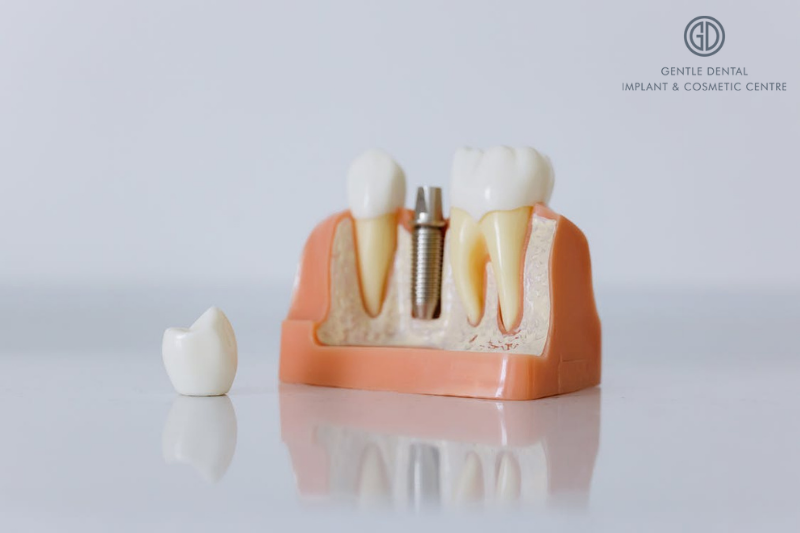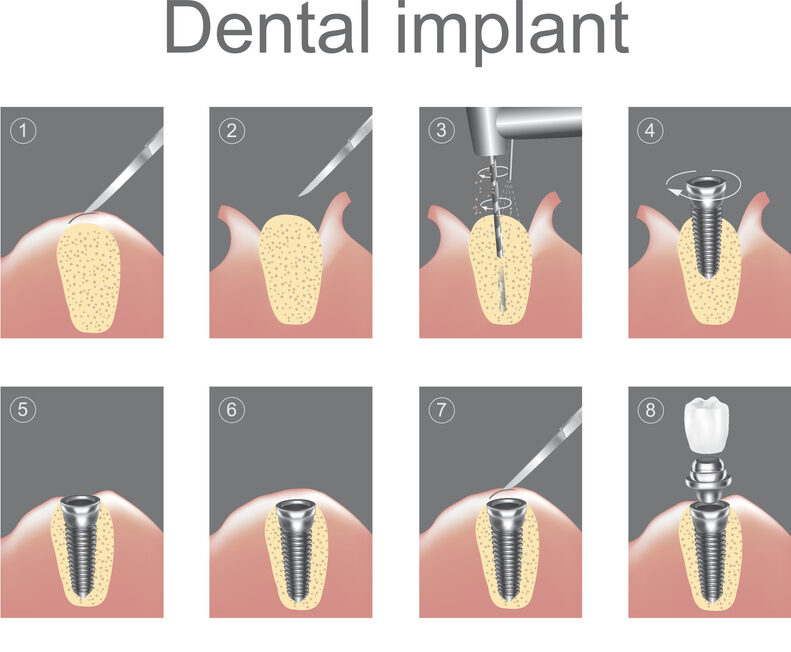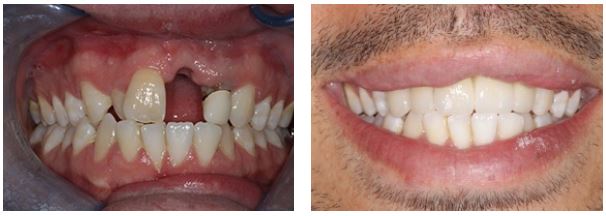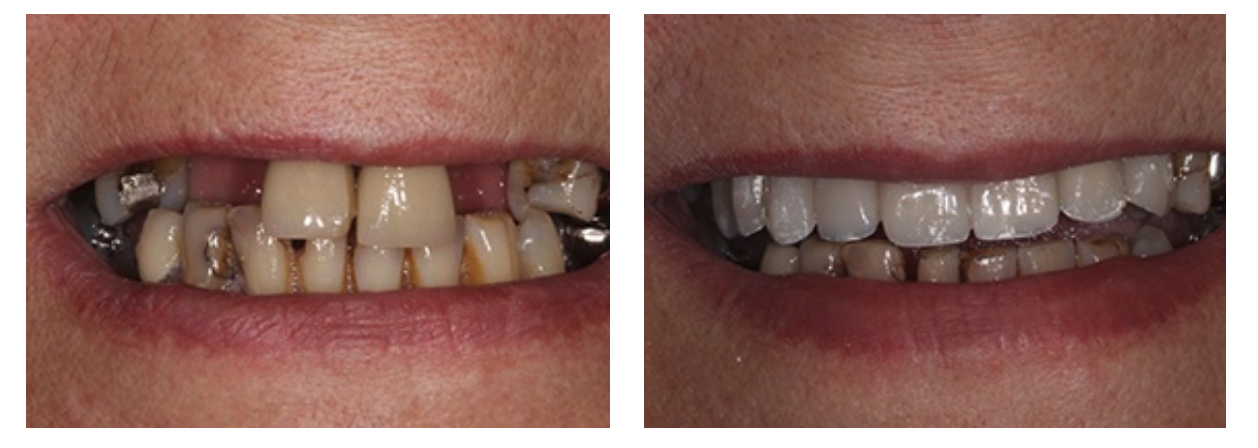Our 98.2% success rate means we successfully apply hundreds of implants each year making us the number one implant provider in Surrey.
Cosmetic Single Implants for Single Tooth Loss
Have you lost a tooth accidentally either through accident, sport or trauma? Being left with a visible gap in your mouth can be difficult for your confidence.
But thankfully, single dental implants are very affordable and offer a long-lasting, natural solution to replace a missing tooth.

What is a single implant?
A single dental implant works exactly like a natural tooth: fixed, permanent and natural-looking. Plus, it’s a great and reliable alternative to dentures.
Single implants are specifically designed to replicate your neighbouring teeth. Made from titanium, the highly durable material fuses well with your jawbone as it acts just like a tooth root.
The titanium-based screw once inserted, physically integrates with the jaw bone, meaning it is permanently attached and there is no likelihood of movement, unlike traditional dentures, which can slip.

Quick contact
How do single-tooth implants work?
A new single tooth implant will consist of a few different components:
The implant – Constructed from titanium and shaped like a screw, which is positioned securely into the jawbone.
The abutment – Also made from titanium, it is attached to the implant, which will then connect the implant to the crown.
The crown – Made of high-quality porcelain, your crown is uniquely made to match your existing teeth and will be attached to the abutment after a period of osseointegration (healing).
Do you qualify for dental implants?
To qualify as a candidate for dental implants, you will need to have a good and healthy overall oral state.
This includes:
- Healthy gums (no signs of gum disease)
- Adequate amount of jaw bone to hold the implant
- Excellent oral hygiene habits

Get an interest-free loan in under 5 minutes
It only takes 2 minutes to apply and you’ll get an answer immediately – applying for a loan has never been easier.
0% finance is available for many treatments up to £30,000. Credit decisions will be subject to individual circumstances. You must be over 18 and earn an income to apply.

What is the implant process like?
Inserting the dental implant into the jaw is quick and straightforward and often carried out under local anaesthetic.
Once the implant is placed, it can take a period of around 12 weeks for the implant to integrate and fully heal.
Once this period is over, the final crown can be manufactured to fit perfectly in line with the other teeth.
Usually, during this period, a temporary crown is placed, which fills the gap whilst the implant is healing.
How long does the procedure take?
The treatment length for your implant will vary depending on any additional procedures required. All of this, however, will be explained to you during your consultation and within your bespoke treatment plan.
Patients wanting something more immediate can opt for same-day implants. Unlike single implants, neighbouring teeth act as anchors, where the new tooth bridges the gaps.
Implant cost FAQ
Implant dentistry is not redeemable via the NHS, they are more likely to prescribe cheaper alternatives like dentures.
Whilst you will have to check with your particular provider, insurance typically does not cover the cost of dental implants. However, as dental implants are now more recognised for their durability, insurers are beginning to recognise their quality. More.
Patients have the option to pay for their treatment interest-free for a period of 24 months.
Speak to one of our dental professionals about this permanent and natural-looking solution to missing teeth on 020 8224 7562.
Why you should get an implant!
- Chewing is made more difficult normally so you are unable to easily enjoy the foods you previously loved.
- Implants prevent the movement of remaining teeth.
- Your teeth may realign and drift into the empty gap of your missing tooth, which can result in an uneven, squint smile.
- The implant will also prevent opposing teeth from overgrowing.
- Restores the functioning of missing teeth and prevents bone loss.
- Untreated missing teeth puts you at risk of periodontitis.
- The roots of your teeth are responsible for strengthening the jaw bone when a tooth is missing the bone around the missing tooth may disintegrate. Having dental implants will prevent this from happening.
















